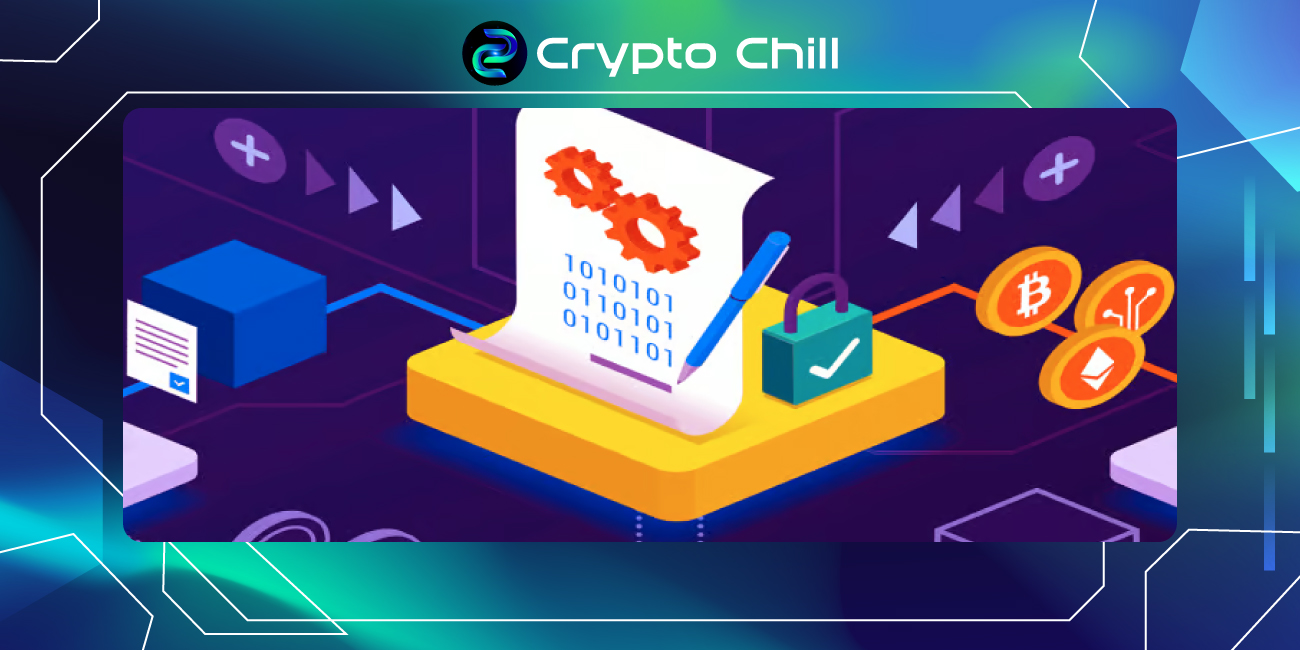Smart contracts are an important component in blockchain technology. These contracts are completely autonomous, decentralized, transparent, and cannot be changed or edited once deployed. Below, we’ll discuss in more depth how smart contracts work, roles, and functions.
What is a Smart Contract?
A smart contract is a digital version of the standard paper contract that can automatically verify whether or not the terms of the contract have been carried out. In 1994, the smart contract concept was first introduced by Nick Szabo, who is an American computer scientist and researcher in digital currencies.
Smart contracts are carried out through a blockchain network, and the code for each contract is duplicated on many of the computers in the network. This ensures that contract terms are executed in a more transparent and secure manner. In other words, smart contracts automate the way agreements are carried out so that everyone involved can know for sure the outcome as soon as possible, without the involvement of an intermediary.
History of Smart Contracts
In 1994, the first smart contract was invented by American computer scientist, Nick Szabo. In his article, he gave a broad definition of smart contract as follows: “A smart contract is a computerized transaction protocol that executes the terms of a contract. The general objectives of smart-contract design are to satisfy common contractual conditions, minimise exceptions both malicious and accidental, and minimise the need for trusted intermediaries.”
The introduction of Bitcoin in 2009 is considered to have supported the first protocol smart contract—establishing a set of conditions essential for the transfer of Bitcoins between network members. These conditions include the user signing the transaction with a private key that matches their public address and having enough money to pay for the transaction.

After that, in 2012, Bitcoin blockchain developed a new type of smart contract known as a multi-signature transaction. In order to be valid, a multi-character transaction needs to be signed with a private key by a specific user. This increases the safety of assets by minimizing errors that can occur if the private key is stolen or lost.
The next big leap in smart contracts occurred in 2013, when Vitalik Buterin published a white paper on Ethereum. In 2015, Ethereum came out as a new type of blockchain for programmable smart contract. Ethereum smart contracts provide a “world computer” that can run numerous independent smart contracts at the same time. This is in contrast to blockchain, which only functions effectively as a single or limited application for smart contracts.

Advantages of Smart Contracts in Blockchain
- High Accuracy – Contract is executed immediately when a condition is met.
- Fast Speed – Paperwork is no longer necessary because smart contracts are based on automated blockchain technology.
- Trust and Transparency – Because no third party is engaged in the transaction and all transaction logs are encrypted and exchanged between participants, users do not have to be concerned about their information being tampered with.
- High Security – The blockchain transaction records are encrypted, making it very difficult to hack smart contracts.
- Time Savings – Smart contract get rid of the need for middlemen, the time delays and costs that come with them.
Conclusion
Smart contracts offer a number of advantages over traditional contracts, making them a powerful tool for businesses and individuals alike. They can help to automate transactions, reduce costs, and improve efficiency. Smart contract is still a relatively new technology, but they have the potential to revolutionize the way we contract with each other. Stay tuned for part 2, where I will discuss some of the specific applications of smart contract in more detail.
Disclaimer: The information in this article is not investment advice from CryptoChill. Overall, cryptocurrencies always carry many financial risks. Therefore, do your own research before making any investment decisions based on this website’s information.









No Comment! Be the first one.